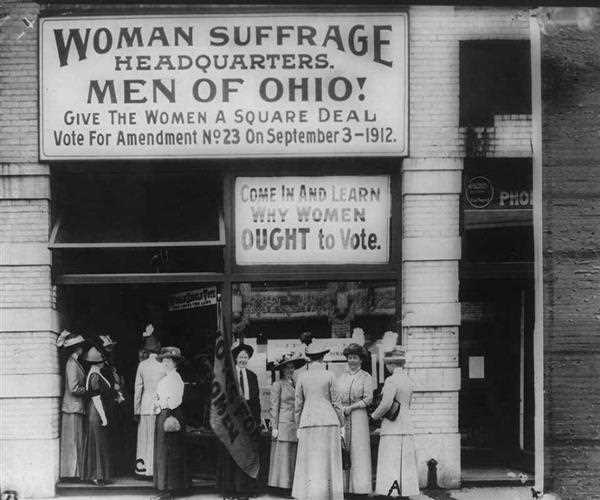The conventional perspective of ladies in the public eye was to remain at home, clean, bring up youngsters, and to help with the family cultivate. This view began to change around the late nineteenth century and amid the modern unrest. Male mastery kept ladies at home yet in the mid nineteenth century, governing bodies and instructors started growing the chances of ladies in training. In spite of the fact that there were special cases and issues with ladies and training was ladies' initial step considering they could now land positions in pharmaceutical and law. Amid the Civil War, ladies assumed control over their spouses employments and incidentally quit battling for suffrage.

They began helping the dark slaves accomplish opportunity. The abolitionist development, the fifteenth amendment, pushed ladies additionally down the trail prompting suffrage. Despite the fact that it took three alterations later and 90 strong long stretches of hard battling for ladies to get the nineteenth amendment.They at last achieved their objective.
In the 1820s men were in control. In their homes, in the working environment, and wherever else. The men reasoning incorporated these thoughts. To start with, it was acknowledged that ladies are belonging of their spouses, and along these lines they should concur with all that they say. Second, it was trusted that most ladies were uneducated, or inept, so ladies were naturally thought to be unequipped for voting in favor of president. Additionally, in light of the fact that ladies were unschooled and oblivious, their say was immaterial. Lastly that they were prevalent and that they should remain as such.
This was a troublesome logic for ladies to upset. This is one motivation behind why ladies' suffrage took so long to acquire.
Notwithstanding male mastery, ladies hurt their own particular reason. People in general trusted that suffragists were associated with embarrassment mongerers, for example, the Claflin sisters. Therefore, most suffragists restricted their work to regular subjects and disdained radical view focuses. For instance, "When Anthony Comstock of Boston and Josiah W. of Philadelphia attempted campaigns against vulgarity, women's activists cheered and affirmed the development in 1895 of the American Puritan Alliance." Which was the reason ladies hurt their own motivation.
Be that as it may, ladies helped their motivation getting together the Seneca Falls Convention. The Seneca Falls Convention, in 1848, "expressed the shameful acts endured by ladies." These treacheries included " the disavowal of the privilege to vote, the way that a wedded lady gave control of her property to her significant other, the rejection of ladies from the callings, and the about total lawful control of ladies by men. (pg.305, Conlin) notwithstanding their traditionalist perspectives, most suffragists were elitists, that is they were not average citizens. For instance, Pitt composes "...the pioneers were white school taught, and working class. They were a first class and a minority inside that world class." accordingly, suffragists were considered less important by the average folks.
It took a global emergencies, World War II, for the cases of the suffragists to be considered important. Just when the work of ladies was require in war time, did the central government follow up on thinking about national suffrage for ladies. Despite the fact that the suffragist development advanced gradually, their endeavors had an impact on the administration. The development conveyed the disparity of voting limitations to open consideration. This open consideration joined with the gallant administration of ladies in industry amid World War I brought about the section of the nineteenth amendment to the Constitution of the United States, in 1920. The nineteenth Amendment gives people measure up to voting rights. Following 90 years, the objective of suffragists was accomplished.
It might have required ladies a long investment to accomplish the privilege of suffrage regardless of their moderate perspectives. Men were debilitated by ladies who needed to push ahead. Since guys overwhelmed the United States, they knew they had the ability to shield ladies from getting the vote. Certain states, for example, Wyoming, gave ladies the privilege to vote in state decisions as ahead of schedule as 1869. Male mastery had a major impact in the entire idea of ladies getting the privilege to vote. Presently, ladies are thought to be approaches with men.
"Cheers"